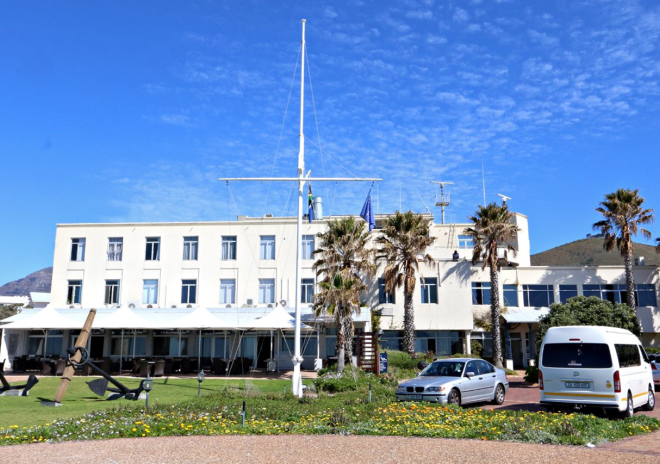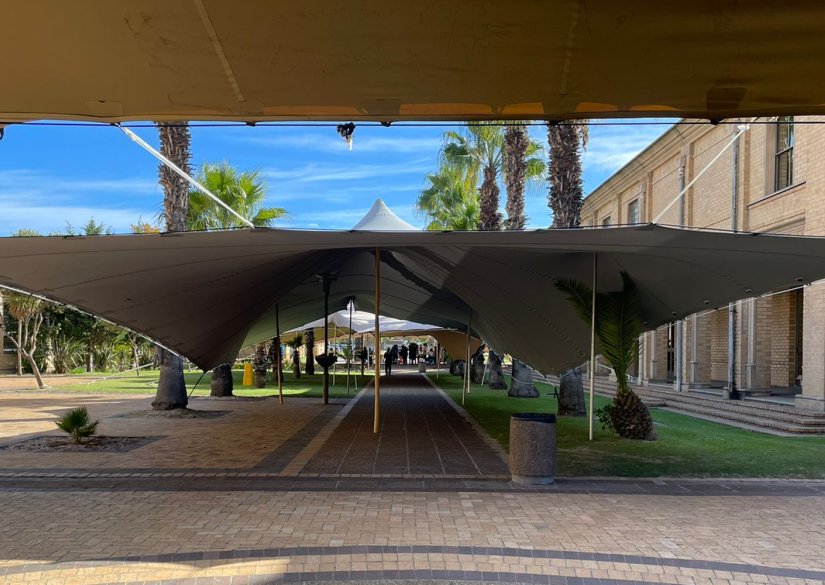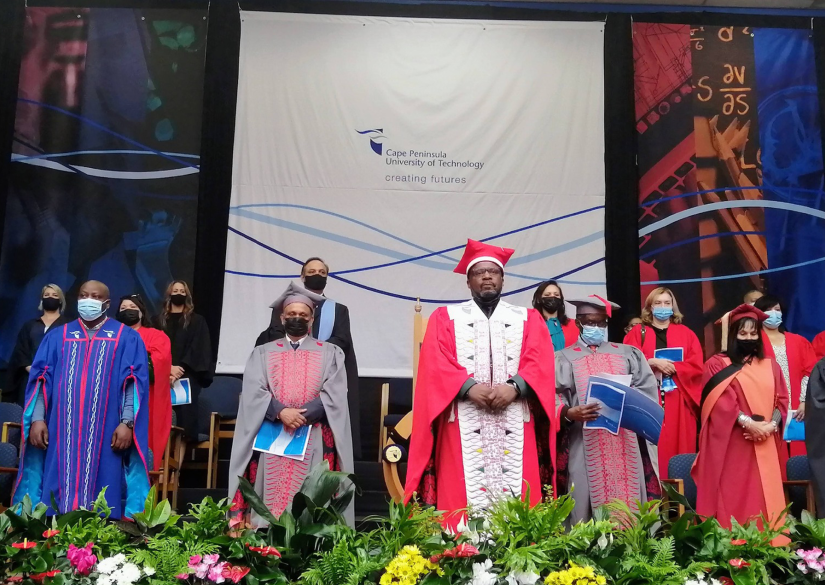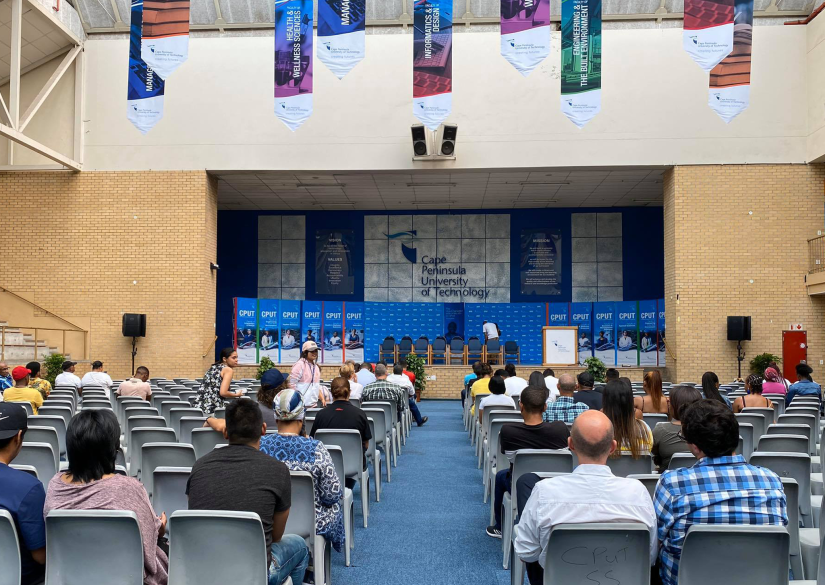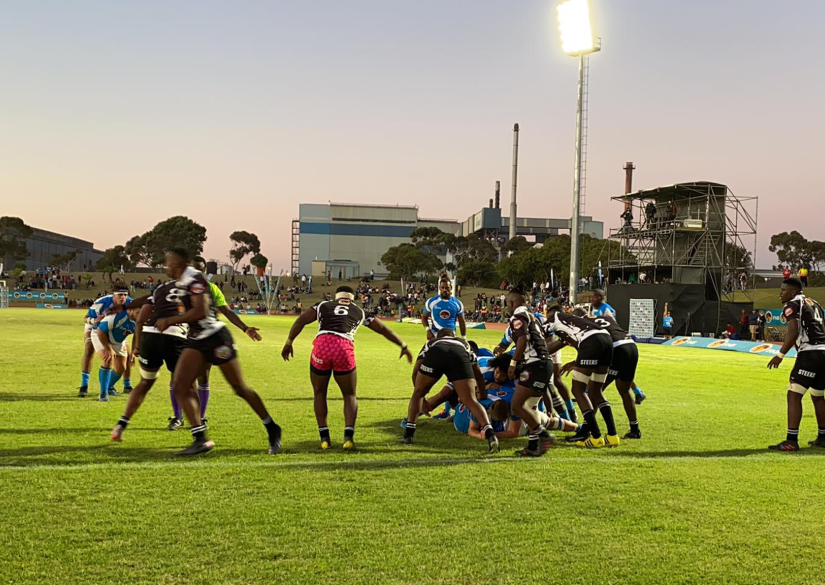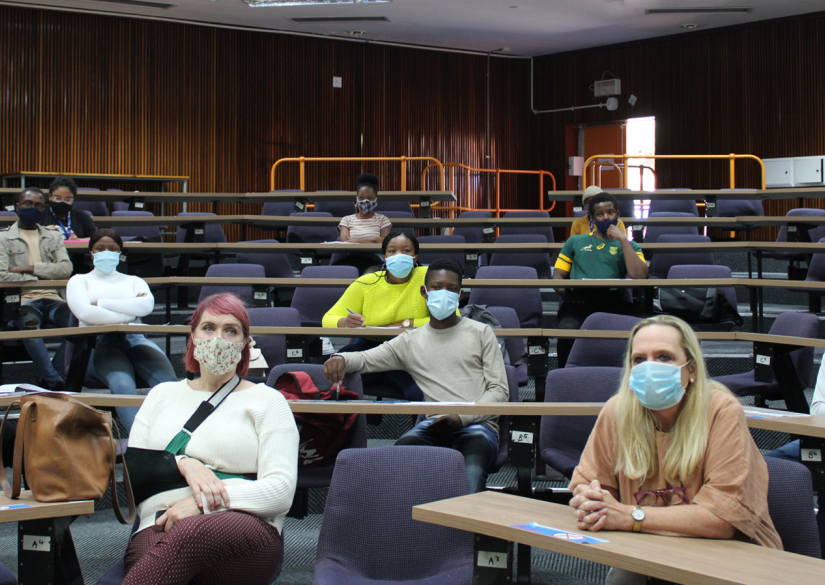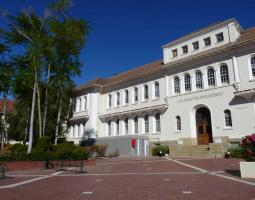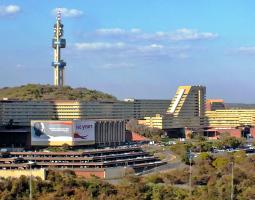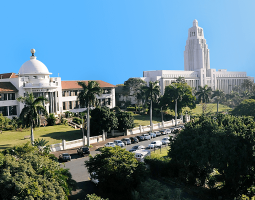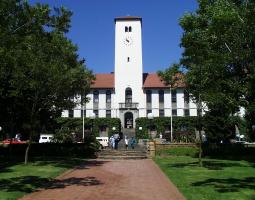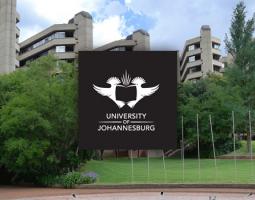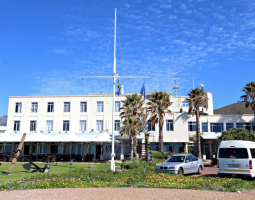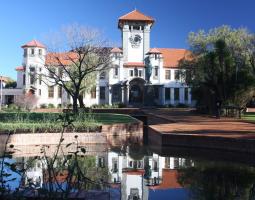Cape Peninsula University of Technology
Programs and prices, tuition fees in Cape Peninsula University of Technology
Short-term courses
- Age – 17+;
- Duration - from 1 day to 4 weeks;
- Language of instruction – English, Afrikaans.
The university offers hundreds of short-term courses of various subjects, focus and duration in English or Afrikaans.
Bachelor
- Age – 17+;
- Duration – 3 years;
- The language of instruction is English/Afrikaans.
CPUT offers a variety of undergraduate options based on modern and relevant programs (in English or Afrikaans). Graduates can apply for jobs in:
- Medical and pharmacological industry;
- Scientific and applied research projects;
- Engineering and technical projects;
- In the state and municipal service;
- In the field of education;
- In economic and legal consulting.
In addition, the university is considered one of the best universities in Africa in terms of the prospects for continuing education at the master's level.
Master
- Age – 21+;
- Duration – 2 years;
- The language of instruction is English.
Master's degree programs are available at the university in more than 40 specialties, including:
- International law;
- Insurance;
- Engineering;
- Social sciences;
- Psychology;
- Political science, jurisprudence;
- Agricultural management and agricultural technologies;
- Environmental health;
- Conservation and conservation of nature;
- Marine sciences and research.
Description of Cape Peninsula University of Technology
- Year of foundation: 2005
- Location: South Africa, Cape Town
- Students age: 18+
- Number of students: 35000
- Language of instruction: English, Afrikaans
- Type of study: university.
It was founded in 2005 as a result of the merger of the peninsula and Cape Horn technicians as part of the national reform of higher education. To date, it is the only technological university in the Western Cape province and the largest university in the region, which has 30 thousand students.
The history dates back to Cape College of Technology, founded in 1920. In 1960 it was transformed into the College of Higher Technical Education of Cape Town, since 1976 - into the Cape Technikon. At the same time, he received the right to confer academic degrees and carry out training.
During the apartheid period, it was intended for whites, but in 1987 he achieved the abolition of the quota and began to teach black and colored students. In 1990 and 2001 he went through several reorganizations.
Educational process
Faculties and colleges
Structurally it includes several faculties:
- Applied research;
- Business and management;
- Education;
- Engineering Sciences;
- Human health and well-being sciences;
- Informatics and Design.
Accommodation, meals, prices
The university offers a hostel for 14 thousand students within walking distance from campuses located on the Cape Peninsula. There are three accommodation options:
- Own dormitories of the university;
- Dormitories rented by the university;
- Accredited partner dormitories.
Advantages
- 30,000 students and an influential alumni community;
- 5 campuses;
- More than 70 bachelor's, master's and doctoral programs;
- It is one of the 5% of the best innovative universities in the world.
Is a member of:
- Association of African Universities (AAU);
- Higher Education South Africa (HESA);
- Cape Higher Education Consortium (CHEC);
- International Education Association of South Africa (IEASA).
Facilities and equipment at Cape Peninsula University of Technology
The 5 campuses are located in different parts of Cape Town and provide students with all the infrastructure opportunities necessary for intensive and modern learning.
The library has tens of thousands of volumes, has access to subscription resources and hundreds of periodicals and continuing publications, and is part of the centralized library system of the Western Cape.
Students have access to various cultural and sports activities:
- Grahamstown and KKNK cultural festivals;
- SATICA Choral Festival;
- Debate competitions;
- Visiting art and cultural shows and exhibitions in Baxter, Labia, Fugart Theater and other places;
- Informal sports days;
- Interfaith meetings.
Sport and culture play an important role in the integrated development of students. It pays tribute to important aspects of student life that encourage friendship, fair play, teamwork and collaboration among students who will one day occupy responsible key positions in various fields of industry. Sport provides an opportunity for young leaders to form strong informal ties that promote development within a single educational institution and serve as a means of building bridges and promoting mutual understanding between students and teachers from different walks of life and ethnic groups.
In addition, the university has its own clinic, where staff and students can be provided with all the necessary medical care.
Enrolment process
Admission consists of the following stages:
- Send a completed application (online (free of charge) or in printed form - in this case, a non-refundable payment of 100 rand is charged);
- Attach the necessary documents or their copies;
- Track the status of the application (notification of the results of consideration is not provided, be careful);
- In case of a positive decision, it is necessary to notify the campus of its consent to enrollment and begin to search for funding. This issue must be resolved before the beginning of the first academic semester.
Enrolment statistics
The average competition is 2.4 people per place, for medical and legal programs - up to 4 people / place.
Institution on the map
Residence permits, citizenship and other services
- Guardianship services during the studies
- Student supervision
Review about Cape Peninsula University of Technology
Recommendations on when to apply
| Language courses, schools and children's language camps | Primary and secondary education - private schools | Preparation programmes for entering universities - higher education | Higher education (after completing accredited programs A-level, IB, High School) - Bachelor, Master, MBA |
| - we recommend to apply 6-9 months before the start of the course (some camps and schools offer discounts for early booking or for lengthy study programs) - there are some very popular and high demand children's camps, where the applications need to be submitted 1 year in advance (in particular Switzerland , Great Britain , USA , Canada , Austria) | - we recommend to apply one year before the start of the training program, - some schools have a specific time frame (September-November - please specify an individual school) - some schools require tests in several stages (UKISET, internal tests of the school: English, mathematics, logics, subjects, interview, some require a personal visit) | - we recommend to apply one year before the start of the program, - for Foundation and Pathway programs, IELTS and TOEFL certificates are usually required, respectively | - recommended submission one year before the start of the program, - the deadline normally closes in January, for TOP HEIs and, as a rule, in March in other universities - for a bachelor, a Foundation or Pathway preparatory program a completed A-level, IB, High School + IELTS / TOEFL are required - for Masters you need a graduated higher education, in some cases you need a pre-Masters program - MBA requires completed higher education, work experience preferably at least 2-3 years, etc. |


